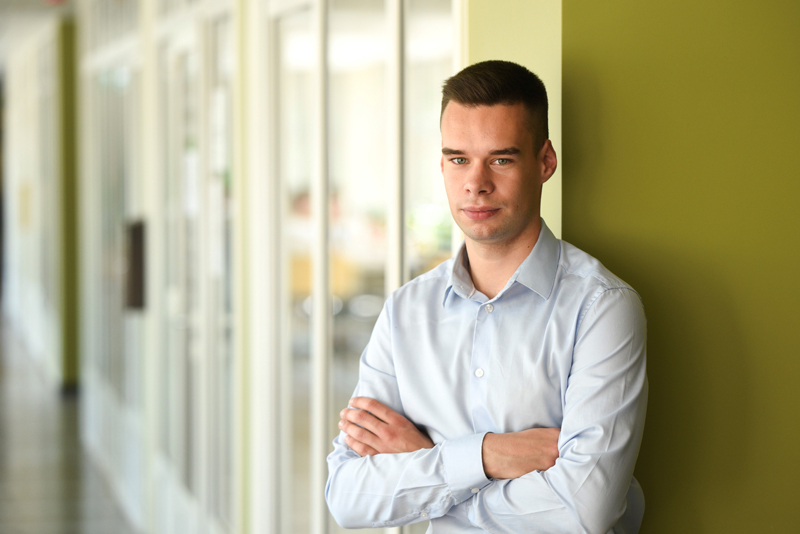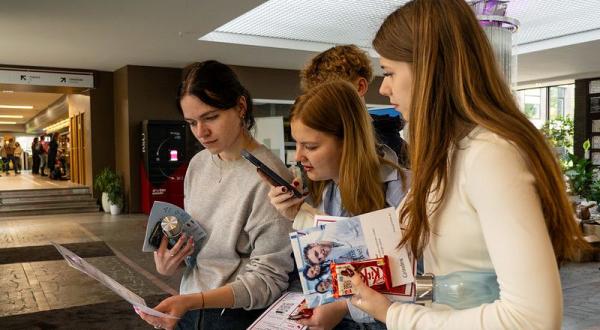Young political scientist Artūrs Šakurovs is sailing in international waters
Three years ago while standing on a navigation bridge in the Caribbean Sea Artūrs Šakurovs, a student at the Latvian Maritime Academy, decided on a rapid change of course – not for the ship, but for his future plans. It was a well-considered decision and today, having just graduated from the International Relations – European Studies Bachelor’s programme at Rīga Stradiņš University (RSU), he appreciates the international navigation skills he has acquired, both those provided to him by seafaring and those learned studying foreign policy and diplomacy.
‘I don’t want to say anything bad about seafaring, studying this subject gave me a lot, but during my second year of study I started to doubt whether this was my real calling. On the one hand life on a ship means adventures and contacts all over the world, but on the other hand it seemed to me to be too homogeneous – you are on the navigation bridge every day and see either a blue sky and a grey sea or vice versa,’ says Šakurovs. He was interested in history and political science already in secondary school, but after finishing the 12th grade, he went into seafaring together with a number of classmates. It seemed to be the better choice at that time. ‘After a bad experience, I now understand clearly that you should only study what you are really interested in. If you feel that you haven’t chosen the right thing, you can always change something. I’ve learned a lot during these three years, and now I feel that I am in the right place.’
A few moments before submitting his bachelor’s thesis. Photo from Šakurovs’ private archive.
The South China Sea was the focus of his bachelor’s thesis. This strategically important region on the world map attracts the young political scientist because of how Chinese and US economic and security policy interests meet there.
Over the last three years he has become familiar with international relations in lectures and classes where students got to play simulation games and go on a study trip to the European Parliament in Brussels. Šakurovs did a placement at the Foreign Affairs Office of the Riga City Council where he was able to put the hardiness that he learned at RSU to good use. The skill to analyse a large amount of information rapidly and qualitatively allowed him to accomplish assigned tasks much faster than his deadlines. 
During a study trip to the European Parliament. Photo from private archive.
Šakurovs had not thought that studying diplomacy would help him so much in his other passion – football. He has played since the age of six, and started to referee at the age of 13.
Latvian Higher League match. Artūrs Šakurovs is the first from the right.
Last year Šakurovs made his debut as a referee in the Latvian Higher League. He says that a referee must be diplomatic and capable of finding common ground with players as well as coaches. ‘In one of my study courses we had to analyse certain personalities in international politics to find out what communication style would be most effective when interacting with them – it flashes across my mind now and then that I use these and other strategies I learned at university in football and elsewhere.’
The first social sciences students started studying at RSU 20 years ago, and over 5 000 political scientists, journalists, lawyers, sociologists, as well as communication, business, marketing and multimedia professionals have graduated the university during this period. The students study in small groups in a modular structure where one study course lasts for about one to three months and examinations are taken at the end of each course rather than during the examination period. Studying at RSU is a very international experience because almost every fourth student is from Germany, Scandinavia, Italy, Israel or the US.







